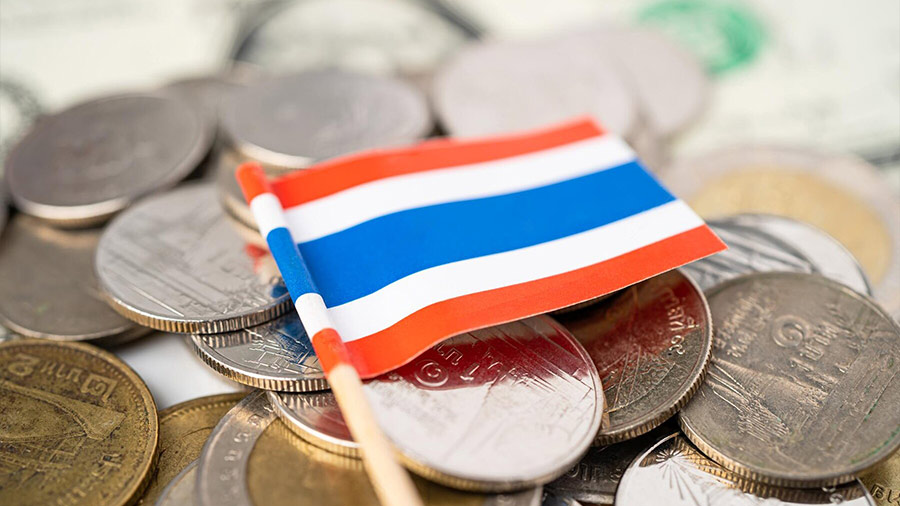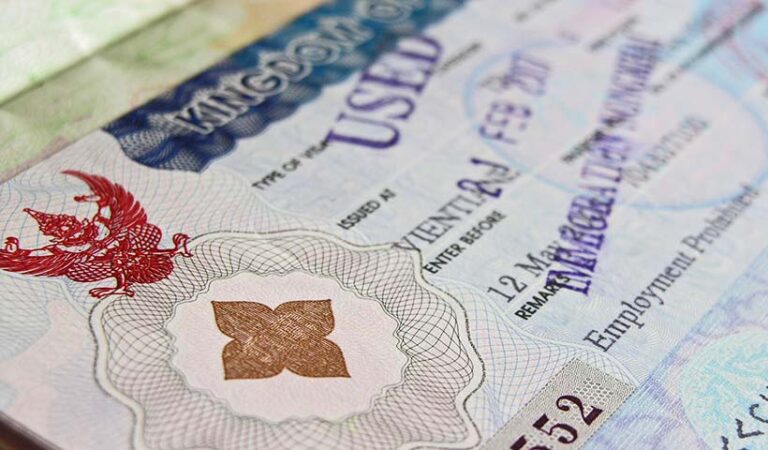Thailand's New Income Tax Regulations: Brace Yourself for Foreign-Earned Income Taxes
Thailand’s recently implemented income tax regulations, effective from 2024, require residents to pay Thai taxes on their foreign-earned income. These regulations aim to boost tax revenue for the country but may have implications for individuals with existing double taxation agreements.
Certain exemptions and deductions are available, such as for disability recipients and home loans. Retirees, in particular, may need to consider the impact on their retirement income and explore tax-friendly alternatives.
Seeking advice from a tax advisor and staying updated on official announcements is recommended in navigating these new regulations.
Key Takeaways
- The new Thailand income tax regulations, effective from 2024, require individuals residing in Thailand to pay taxes on their foreign-earned income.
- Certain types of income may be exempt from taxation, and disability recipients have additional tax deductions. Home loans may also be exempt from income tax.
- Double taxation agreements between Thailand and certain countries may exempt individuals from paying Thai taxes if they already pay taxes in their home country.
- Retirees who do not engage in business activities may be affected by the new regulations and may consider relocating to countries with more favorable tax policies such as Cambodia, Vietnam, Philippines, Mexico, or Costa Rica.
Overview of the New Income Tax Regulations
The new income tax regulations in Thailand provide a comprehensive framework for the taxation of foreign-earned income and aim to increase tax revenue for the country.
Effective from 2024, these regulations require individuals residing in Thailand to pay taxes on their foreign-earned income.
It is important to note that certain types of income may be exempt from taxation, and individuals with disabilities may have additional tax deductions. Additionally, home loans may not be subject to income tax under these regulations.
It is crucial for individuals to consult with a tax advisor to understand specific exemptions and deductions.
Furthermore, Thailand has double taxation agreements with certain countries, which may exempt individuals from paying Thai taxes if they already pay taxes in their home country. Retirees who do not engage in business activities may be affected by these regulations and may consider relocating to countries with more favorable tax policies.
Seeking clarification from revenue department officers or tax advisors is advisable to fully understand the implications of these new regulations.
Exemptions and Deductions Under the New Regulations
Certain types of income may be exempt from taxation under the new regulations in Thailand. The exemptions and deductions provided by the new regulations aim to alleviate the tax burden on certain individuals. Here is a table summarizing some of the key exemptions and deductions available under the new regulations:
| Exemptions | Deductions |
|---|---|
| Disability recipients | Additional tax deductions |
| Home loans | Exemption from income tax |
| Double taxation agreements | |
Disability recipients are eligible for additional tax deductions, which can help reduce their overall tax liability. Additionally, individuals with home loans may be exempt from income tax on the interest paid on their mortgage.
Furthermore, double taxation agreements between Thailand and other countries may provide relief to individuals who are already paying taxes in their home country.
It is important to consult with a tax advisor to understand the specific exemptions and deductions applicable to your situation.
Double Taxation Agreements and Their Impact
Double taxation agreements play a significant role in determining the impact of Thailand’s new income tax regulations on individuals with foreign-earned income. These agreements are designed to prevent individuals from being taxed twice on the same income in both their home country and Thailand.
Here are some key points to understand about double taxation agreements and their impact:
- Purpose of double taxation agreements:
- Prevent double taxation: These agreements ensure that individuals are not taxed twice on the same income.
- Promote trade and investment: Double taxation agreements encourage cross-border trade and investment by providing tax certainty and reducing tax barriers.
- How double taxation agreements work:
- Tax credits or exemptions: These agreements typically allow individuals to claim a tax credit or exemption in their home country for taxes paid in Thailand.
- Residency rules: The agreements often have provisions to determine an individual’s tax residency and allocate taxing rights between countries.
Understanding the specific terms of the double taxation agreement between your country and Thailand is crucial to determining the impact of the new income tax regulations. Consulting with a tax advisor can provide guidance on how these agreements may affect your tax liabilities.
How the New Regulations Affect Retirees
Retirees may face the impact of the new regulations on their income tax obligations in Thailand. Under the new regulations, individuals residing in Thailand are required to pay taxes on their foreign-earned income. This means that retirees who have income from overseas sources will now be subject to Thai taxes on that income.
The new regulations aim to increase tax revenue for the country, but they may also have an effect on retirees who rely on their foreign-earned income for their retirement. It is important for retirees to consider the potential impact on their retirement income and consult with a tax advisor to understand their obligations and any available exemptions or deductions.
Additionally, some retirees may choose to explore other countries with more favorable tax policies for their retirement.
Seeking Clarification and Staying Updated on the New Regulations
To ensure compliance and understanding of the new regulations, individuals should prioritize seeking clarification and staying updated on the latest developments in Thailand’s income tax laws. Here are some key points to consider:
- Consult with a tax advisor or revenue department officer for clarification on specific situations. They can provide guidance on how the new regulations may apply to your individual circumstances. They can help you navigate any complexities or uncertainties in the tax laws.
- Stay updated on official announcements and changes to the law. Regularly check for updates from the revenue department or other relevant government agencies. Subscribe to official newsletters or publications to receive the latest information.
Frequently Asked Questions
Are There Any Specific Requirements or Criteria for Individuals to Be Considered as “Residing in Thailand” Under the New Income Tax Regulations?
Under the new income tax regulations in Thailand, specific requirements or criteria for individuals to be considered as ‘residing in Thailand’ have not been outlined. It is advisable to consult with the revenue department officer or a tax advisor for further clarification.
Can Individuals Claim Deductions for Expenses Related to Their Foreign-Earned Income, Such as Travel Expenses or Professional Development Courses?
Deductions for expenses related to foreign-earned income, such as travel expenses or professional development courses, are not explicitly mentioned in the new Thailand income tax regulations. Consult with a tax advisor for specific information on deductions.
How Will the New Income Tax Regulations Affect Foreign Companies Operating in Thailand and Their Employees?
The new income tax regulations in Thailand may impact foreign companies operating in the country and their employees. It is advised to consult with a tax advisor to understand the specific implications and ensure compliance with the new regulations.
Will the New Regulations Affect Individuals Who Have Already Retired in Thailand and Are Receiving a Pension From Their Home Country?
The new Thailand income tax regulations may impact individuals who have retired in Thailand and are receiving a pension from their home country. It is advisable to consult with a tax advisor for specific information and to understand the implications on retirement income.
Are There Any Penalties or Consequences for Individuals Who Fail to Comply With the New Income Tax Regulations?
Failure to comply with the new income tax regulations in Thailand may result in penalties and consequences. It is important for individuals to consult with a tax advisor to understand the specific penalties and ensure compliance with the regulations.
Conclusion
In conclusion, Thailand’s new income tax regulations, effective from 2024, require individuals residing in the country to pay Thai taxes on their foreign-earned income. These regulations aim to increase tax revenue for Thailand but may have implications for individuals with double taxation agreements.
Exemptions and deductions exist for specific types of income, and it is advisable to consult with a tax advisor to understand their applicability.
Retirees, particularly those not engaged in business activities, may need to carefully consider the tax implications before relocating. Seeking clarification and staying updated on the regulations is crucial.







